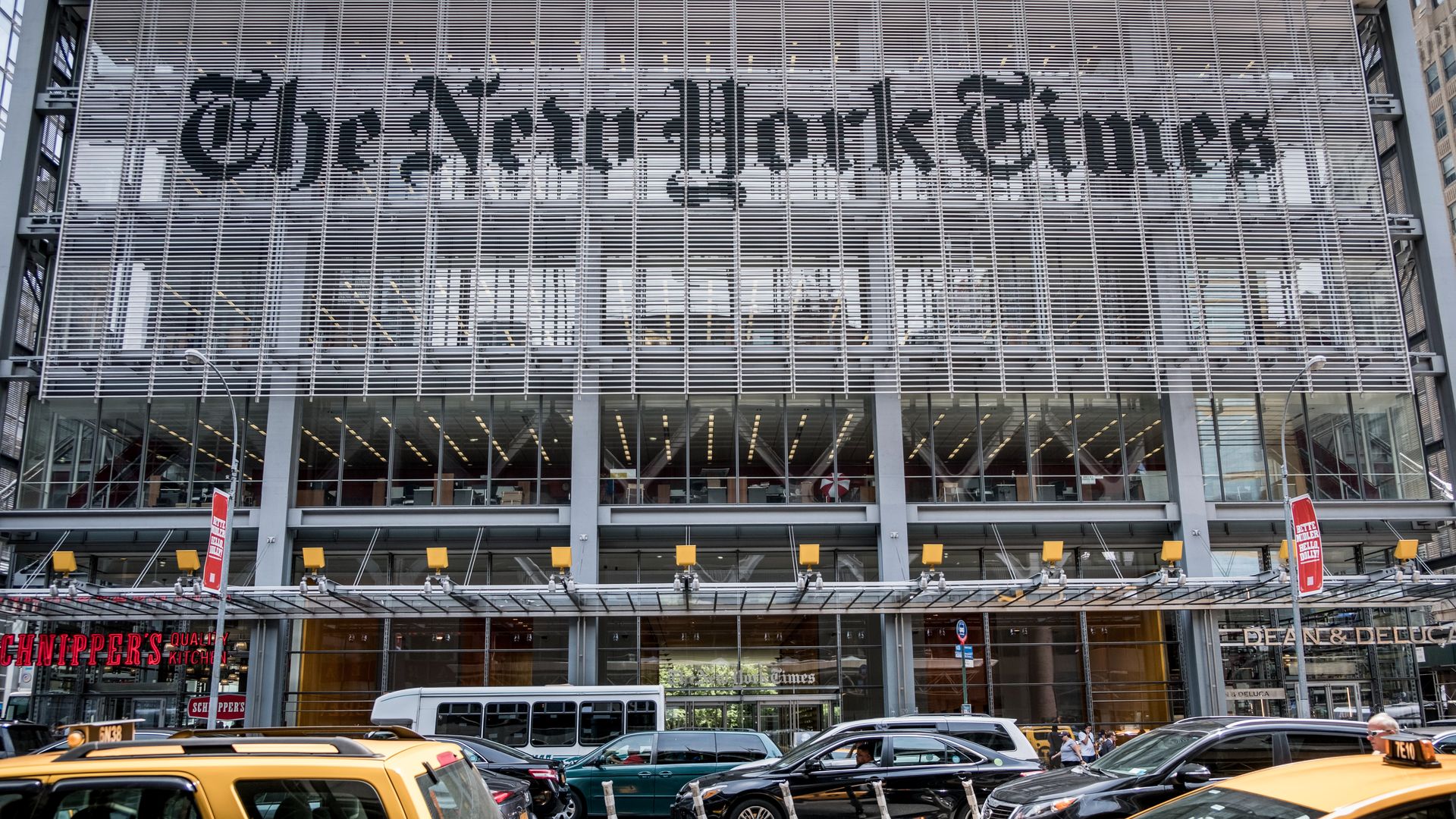Trump campaign sues New York Times for libel over opinion article
Add Axios as your preferred source to
see more of our stories on Google.

Photo: Avalon/Universal Images Group via Getty Images
The Trump campaign is suing the New York Times for libel over an opinion article that claimed the campaign had an "overarching deal" with Russian President Vladimir Putin to trade election help for a "new pro-Russian foreign policy."
Why it matters: Throughout his career in business and politics, President Trump has often threatened to sue for libel but rarely followed through. In order for a public official to successfully sue for libel, they must be able to prove that the defendant acted with "actual malice" — a high bar for most lawsuits.
Details: The lawsuit, filed in the New York State Supreme Court, claims the article falsely reports a conspiracy between Trump and Russia and that the Times knowingly published a false narrative.
- The suit claims special counsel Robert Mueller's report on Russian interference, issued in April 2019, confirms "the falsity of the story. The Times article was published in March.
- The opinion piece was written by former New York Times executive editor Max Frankel in March last year. It begins by claiming the Trump campaign exchanged new Russian foreign policy for help in the 2016 election:
"There was no need for detailed electoral collusion between the Trump campaign and Vladimir Putin’s oligarchy because they had an overarching deal: the quid of help in the campaign against Hillary Clinton for the quo of a new pro-Russian foreign policy, starting with relief from the Obama administration’s burdensome economic sanctions. The Trumpites knew about the quid and held out the prospect of the quo."
What they're saying: "The statements were and are 100 percent false and defamatory," said Jenna Ellis, legal counsel for the campaign in a news release. "The complaint alleges The Times was aware of the falsity at the time it published them, but did so for the intentional purpose of hurting the campaign, while misleading its own readers in the process."
- A spokesperson for the Times responded: "The Trump campaign has turned to the courts to try to punish an opinion writer for having an opinion they find unacceptable. Fortunately, the law protects the right of Americans to express their judgments and conclusions, especially about events of public importance. We look forward to vindicating that right in this case."
